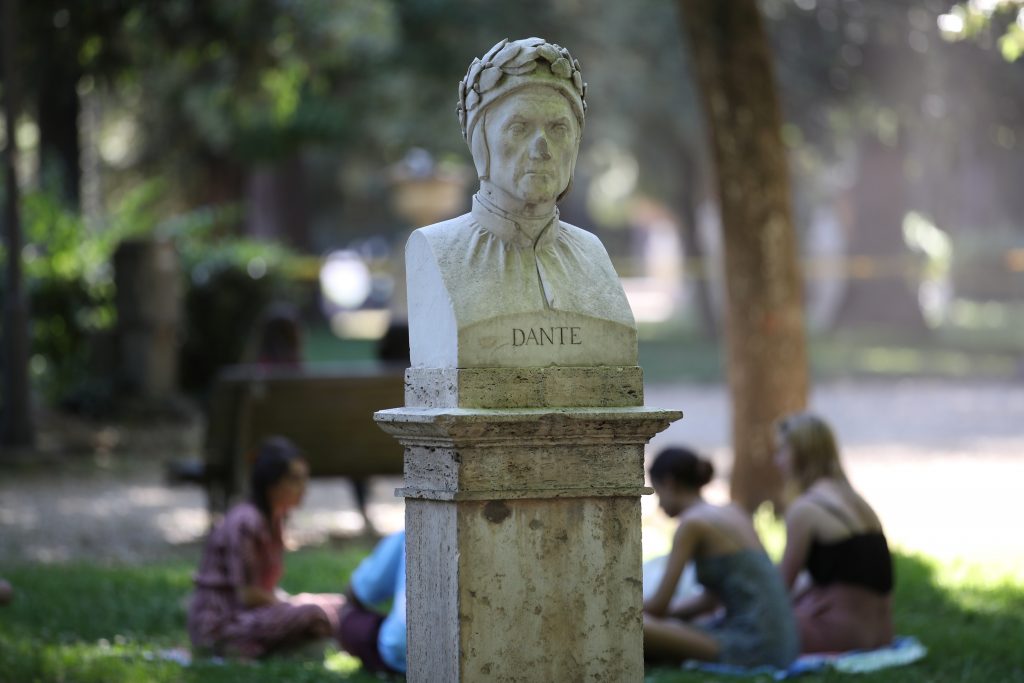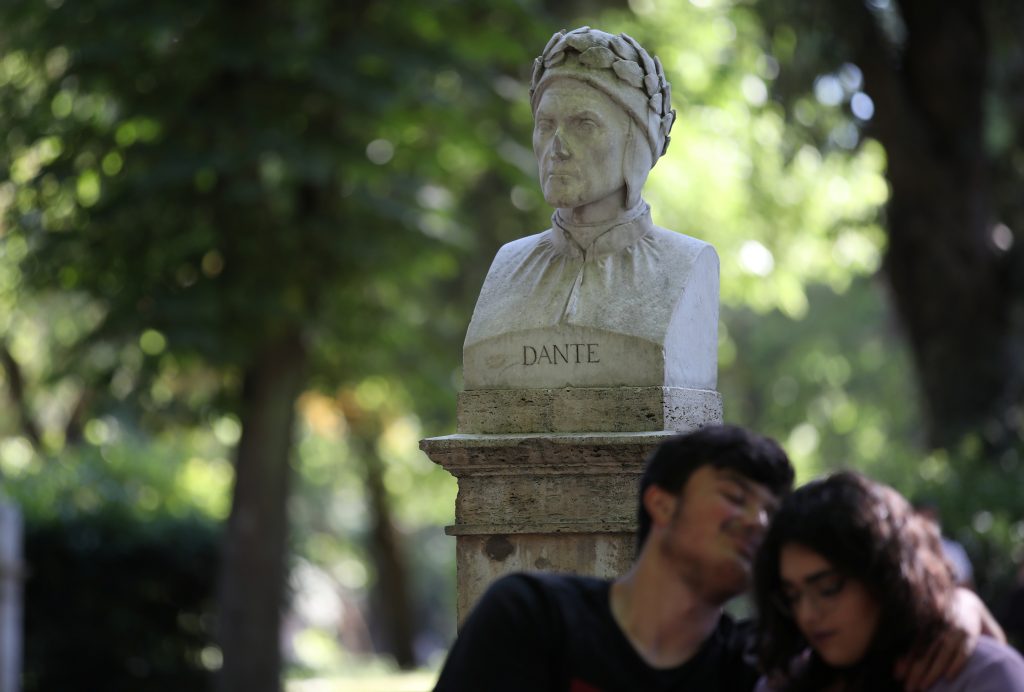
Italian epic poet Dante is going to heaven – again.
Dante, Italy’s greatest poet, divided his monumental Divine Comedy into three parts – Hell, Purgatory and Paradise. The allegory representing a soul’s journey to God is one of the world’s most influential works of literature.
Now, a copy of the entire Divine Comedy, micro-inscribed on sheets of a titanium and gold alloy, will be sent up into space and left there to float in the heavens among the stars that Dante wrote about.
The last word in each of the three parts is “stelle” (stars), including the famous final line which defines God as “The love that moves the sun and the other stars.”
“We knew there would be many special editions of the Divine Comedy coming out for this year’ 700th anniversary of his death and we wanted to do something totally different,” said Giorgio Amaroli, head of Scripta Maneant, a high-end art publishing house based in Bologna.
Dante Alighieri, often referred to as the “Supreme Poet,” lived in the Republic of Florence and his writings helped establish Tuscan as the standardized Italian language. He was exiled for political reasons and died in Ravenna in 1321.
For the space project, two sheets measuring about 29 cm by 43 cm (11 X 17 inches) and folded in four, accordion style, will each be inscribed with the entire poem of some 14,200 lines containing about 32,000 words.
They will be sent up on a Soyuz mission from the Baikonur Cosmodrome in Kazakhstan to the International Space Station in the autumn. One will be released in space. The other will be signed by the astronauts and returned to earth in 2022.

A facsimile of the second sheet will be made part of a traditional large format printed version of the Comedy and sold as a limited numbered edition of 700 copies, for the number of years since Dante died.
“The Soyuz people told us that a paper version would not last long in space and so they suggested the titanium and gold alloy,” Amaroli said, adding that a prototype had been sent to Kazakhstan for inspection.
Amaroli got the inspiration for the project from Canto 22 of Paradise, when Dante is among the vastness of the spheres of heaven and the planets, looks down at earth, and is taken aback by its smallness.
The special delivery into space will cost the publishing company more than 150,000 euros and the books will cost about 6,000 euros each, Amaroli said.
The publishing house is no stranger to spectacular, high-end projects. In 2017, it worked with the Vatican Museums on an extra-large three-volume set that reproduced Michelangelo’s Sistine Ceiling frescoes in 1:1 scale.
The Dante book is a steal by comparison. The Sistine set cost 15,000 euros.
Source: Licas Philippines
0 Comments